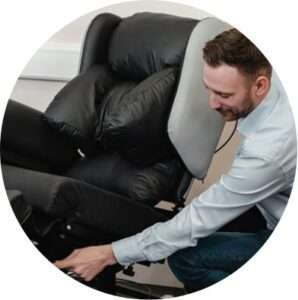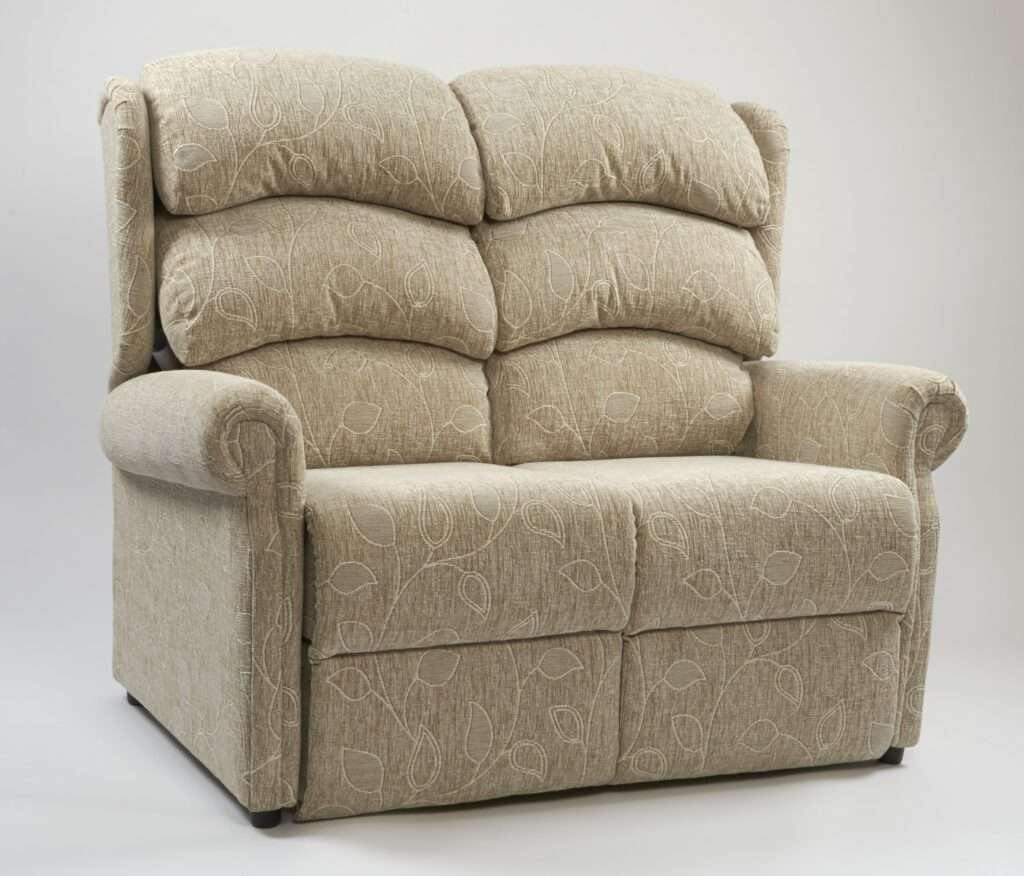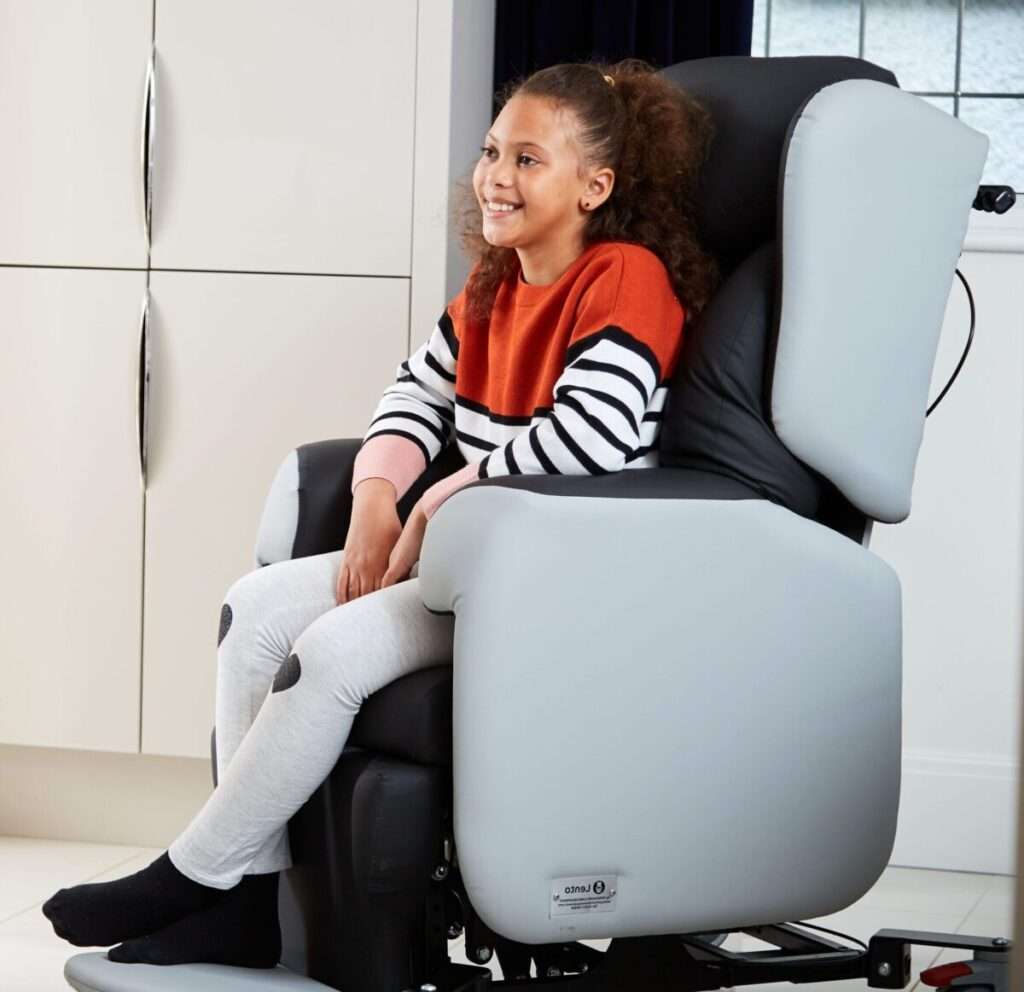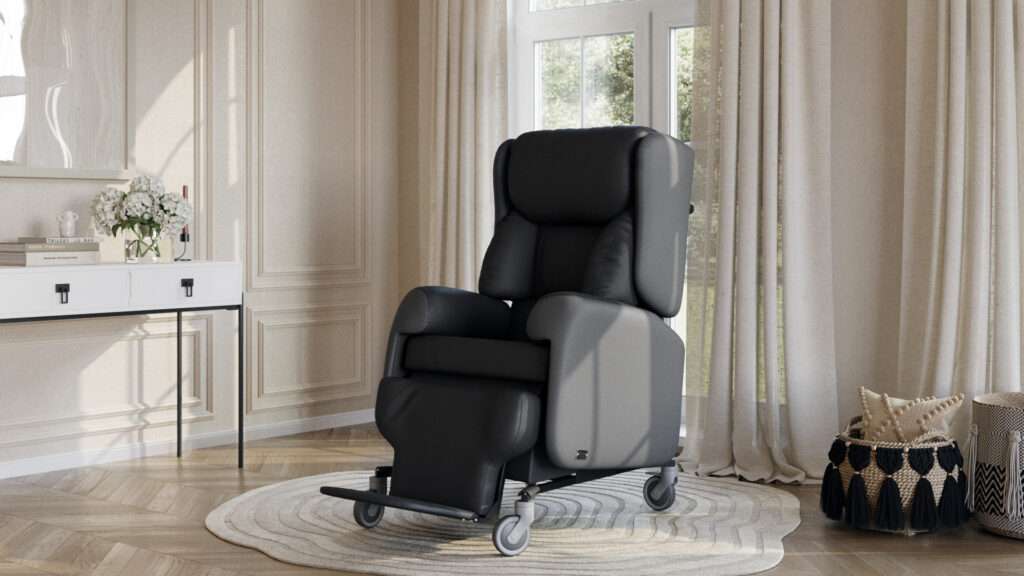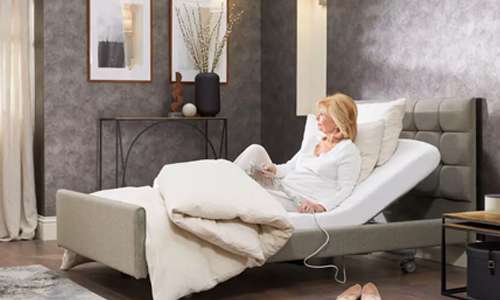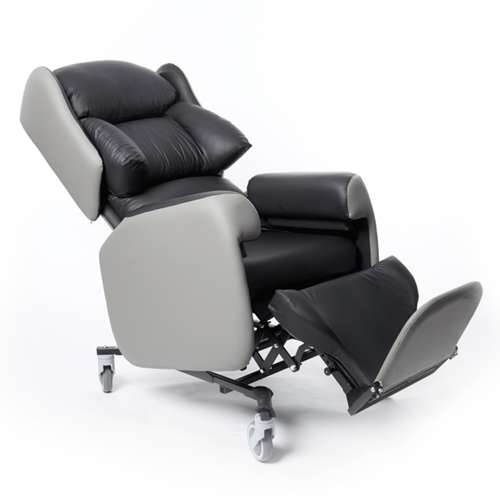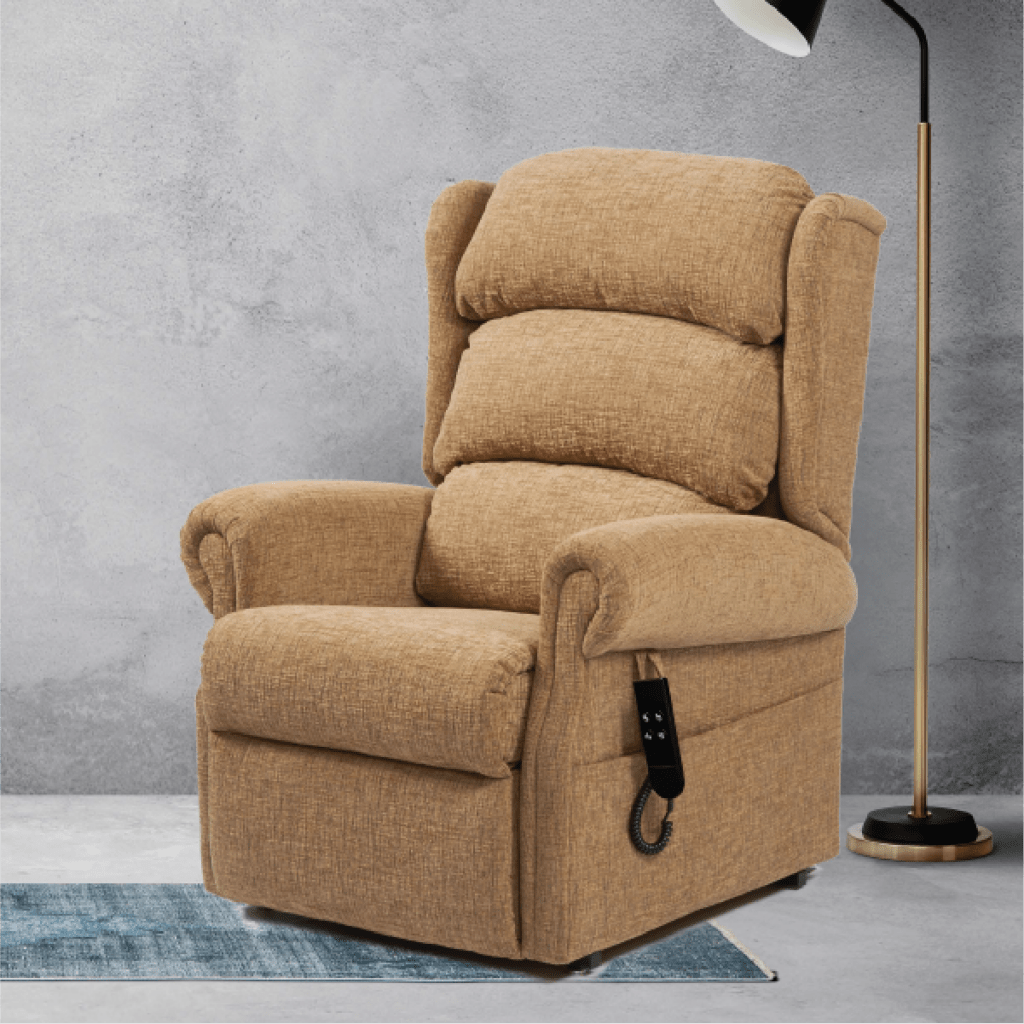Occupational Therapists (OTs) and other healthcare professionals have been prescribing specialist seating to help prevent health problems in people with disabilities for decades.
Padraig Finn, our in-house Physiotherapist and Seating Specialist, has shared his insights on how the science behind physiotherapy can be applied to seating assessments.
He explains how approaching assessments with a physiotherapy perspective helps to build a full picture of the user’s needs. Together with recent innovations in chair design in the healthcare sector, this approach allows specialist seating options to be tailored to individual care — promoting health, wellbeing, and good quality of life.
Read the full interview…
Jump straight to…
Why is specialist seating important?
According to the British Heart Foundation, the average adult spends around 9.5 hours a day sat down. Almost everyone then has experienced the discomfort associated with sitting in the same position for too long. Pins and needles, numbness, back and joint pain, stiffness, and cramp are all common complaints.
But this discomfort is only short-term. Someone with good levels of mobility can get up, stretch their legs, and feel better in a few minutes. Maintaining good posture whilst sitting and regularly readjusting body positioning throughout the day is usually enough to stop long-term issues developing.
Risk of injury and long-term damage from the wrong chair is higher in disabled people
For adults and children with disabilities however, prolonged sitting can have much more serious consequences. Individuals with reduced mobility cannot easily adjust themselves in their chair. This puts them at risk of a whole range of health problems, including pressure ulcers, spinal deformities, poor circulation, and respiratory issues.
Specialist seating can be custom sized to perfectly fit the individual user, providing levels of support and comfort that standard seating cannot. Features and functions can also be added and adapted to support the different, complex care needs each individual may have.
How does physiotherapy relate to specialist seating assessments?
Padraig worked as a physiotherapist in the NHS full-time for eight years. During this time, he covered numerous rotations — including musculoskeletal and respiratory physiotherapy — before specialising in neurophysiotherapy.
After this, Padraig joined Yorkshire Care Equipment team in 2012! He took on a role as a seating assessor and has been using his background in physiotherapy to help his clients find the right chair for them ever since.

Padraig Finn – Physiotherapist & Seating Assessor at Yorkshire Care Equipment
Explaining how his experience as a physiotherapist helps when carrying out seating assessments, Padraig said:
“Specialist seating forms part of the treatment plan for an individual’s condition. Having background knowledge of different conditions allows me to match certain seating options to certain conditions. Working directly with clients, I’ve seen the intricate details of how clinical presentation can change over time. So, I’m able to tailor the features of the chair for the user’s journey with a progressive condition.
Having anatomical knowledge also translates well into seat sizing. For example, understanding that seat height should be based on lower leg length helps both when carrying out assessments and when explaining the importance of seat sizing to other healthcare professionals.”
When you look closely at the definition of physiotherapy and the role of a seating assessor, the overlaps become even clearer.
What is physiotherapy?
The NHS definition of physiotherapy states:
“Physiotherapy helps to restore movement and function when someone is affected by injury, illness or disability. It can also help to reduce your risk of injury or illness in the future.”
The Chartered Society of Physiotherapy (CSP) adds:
“Physiotherapy is a science-based profession and takes a ‘whole person’ approach to health and wellbeing, which includes the patient’s general lifestyle.”
Neurological physiotherapy
Padraig’s specialism, Neurophysiotherapy (or neurological physiotherapy), focuses on the assessment and treatment of individuals with neurological conditions.
This term refers to any condition affecting the brain and/or spinal cord, such as cerebral palsy, stroke, or multiple sclerosis.
Many neurological conditions are associated with mobility issues, so a specialist care chair is often recommended to support individuals with these conditions.
Both need a holistic approach to health & wellbeing
This holistic, ‘whole-person’ approach to health is probably the biggest link between seating assessments and physiotherapy.
When carrying out a seating assessment, the key is to think about the bigger picture of how specialist seating fits into someone’s overall care and quality of life.
The right chair can provide support in lots of areas you wouldn’t initially think of. For example:
- Skin conditions need matching to the right fabric — For someone with weeping legs, you’re looking for a chair with a durable, wipeable surface that is also soft on the skin. Recommending the right fabric helps them to maintain personal hygiene and prevents further injury to the legs.
- During end-stage motor neurone disease (MND) individuals experience swallowing difficulties — Choosing a chair with tilt-in-space and adjustable back angle helps their speech and language therapist to get the right angle for maximum swallow potential.
Innovations in specialist seating
The science of how seating affects so many areas of someone’s health and quality of life has fed into Yorkshire Care Equipment’s product development as well as our seating assessments.
We have already touched on the importance of tailoring a chair to match the clinical presentation of someone’s condition. Seeing first-hand the negative consequences of a chair that is not a good match helped us identify the need for a chair that could be adjusted to suit individual care requirements.
As a team, we made it our goal to develop a single chair that was versatile enough to provide this level of bespoke seating solution for many different individuals.
Lento Care Chair
After two years of research and development, working closely with OTs, we launched the Lento care chair.
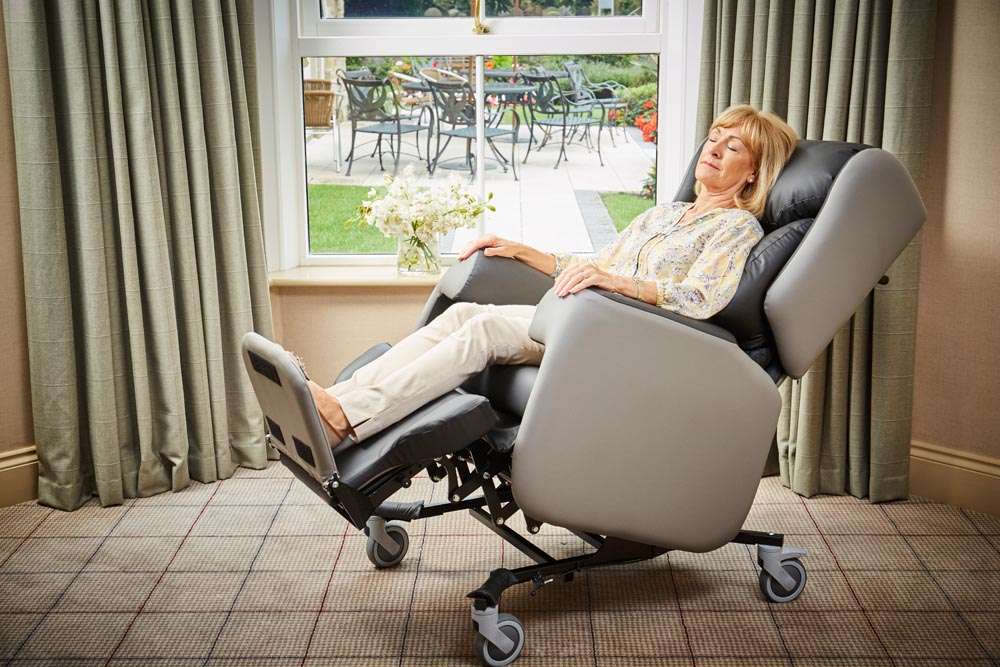
Lento Care Chair is comfortable and supportive for people with disabilities that limit their mobility
It has proved extremely popular with loan stores, hospitals, care homes and private residents. Explaining the unique level of customisation, Padraig said:
“You can change the seat height, width and depth, as well as the height of the footplate and armrests, and the backrest cushion in minutes. The best part is that you don’t even need any tools — that really impresses people when I demonstrate the Lento. It’s just so easy to adjust.
There are different backrest options and the can change the footplate angle or add different pressure relief cushions. Plus, it’s got functions like tilt-in-space, backrest recline and articulating leg rest elevation. It really is one of the most flexible chairs out there.”
Our research has found that the Lento fits around 80% of the adult population.
Book a seating assessment
If you’d like to book an assessment with Padraig, or one of our other experienced seating specialists, please do get in touch! We are currently offering video and phone appointments to help people find their ideal chair. Next-day and contact-free delivery options available.
Error: Contact form not found.
Interview originally published in AT Today as part of their series with healthcare professionals.



